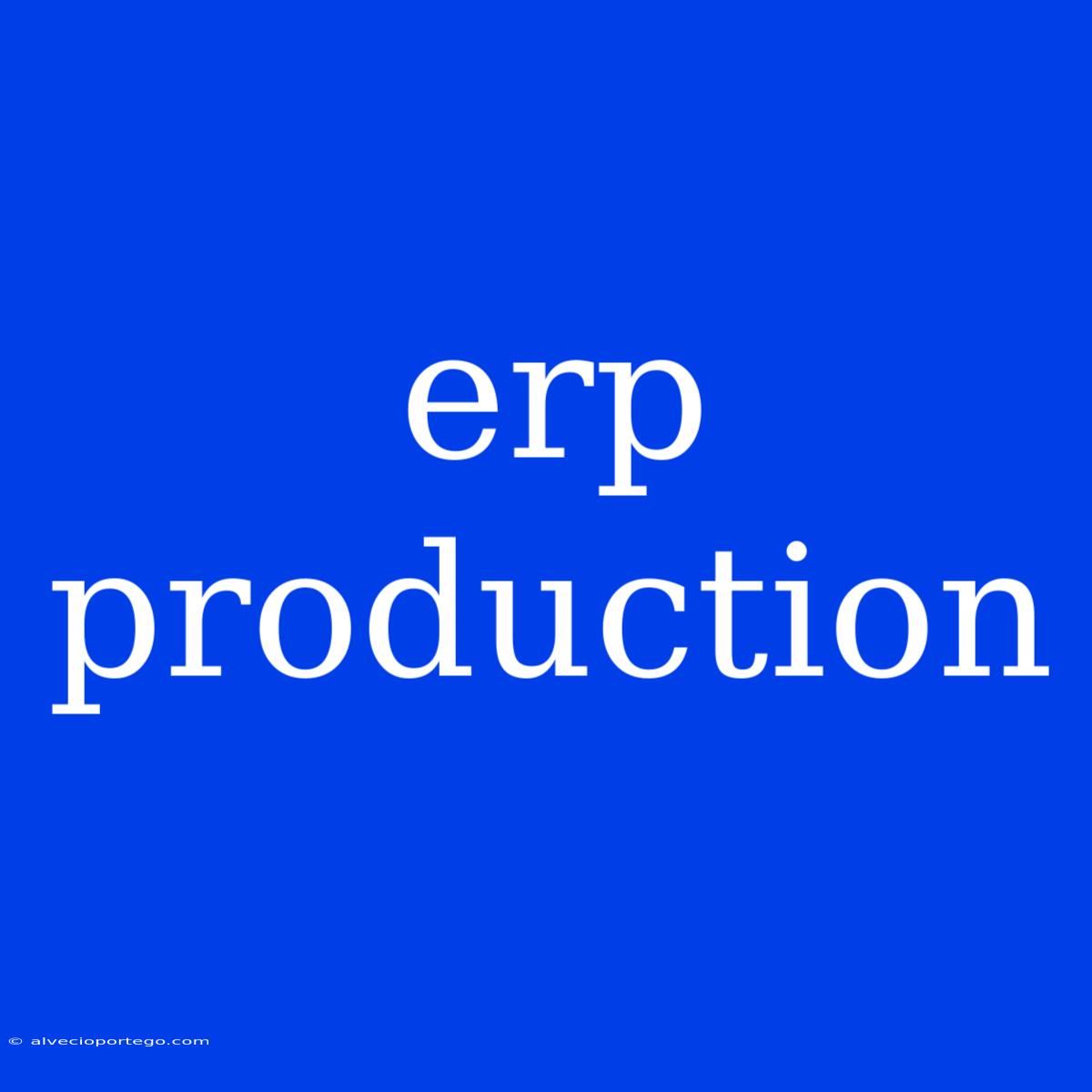ERP for Production: Streamlining Your Manufacturing Processes
Enterprise Resource Planning (ERP) systems have become an indispensable tool for businesses across various industries, especially within the manufacturing sector. ERP for production specifically focuses on optimizing and streamlining the production processes, leading to increased efficiency, reduced costs, and enhanced overall performance.
Benefits of using ERP for Production:
- Improved Inventory Management: ERP systems provide real-time visibility into inventory levels, allowing for better forecasting, reduced waste, and minimized stockouts.
- Enhanced Production Planning: ERP enables accurate production planning, ensuring timely delivery and meeting customer demands.
- Automated Processes: Automating repetitive tasks like order processing, scheduling, and reporting frees up time for employees to focus on strategic initiatives.
- Streamlined Supply Chain: ERP integrates with suppliers and distributors, enabling seamless communication and collaboration across the entire supply chain.
- Real-time Data Analysis: ERP provides valuable insights through real-time data analysis, helping identify bottlenecks, optimize production schedules, and improve decision-making.
- Improved Quality Control: ERP systems facilitate tracking of materials and finished products, ensuring quality standards are met throughout the production process.
- Increased Productivity: By automating tasks and streamlining processes, ERP significantly improves overall productivity within the manufacturing facility.
- Reduced Costs: ERP helps optimize resource utilization, minimizes waste, and streamlines operations, leading to significant cost savings.
- Improved Customer Satisfaction: By meeting deadlines, providing accurate information, and ensuring product quality, ERP helps improve customer satisfaction.
Key Modules of an ERP System for Production:
- Production Planning: This module helps plan and schedule production activities, optimize resource allocation, and manage work orders.
- Inventory Management: This module provides real-time inventory visibility, automates procurement processes, and tracks material usage.
- Quality Management: This module helps monitor product quality, track defects, and implement corrective actions to maintain high standards.
- Supply Chain Management: This module manages relationships with suppliers and distributors, tracks orders, and ensures timely delivery.
- Financial Management: This module integrates with production processes to track costs, analyze profitability, and manage budgets.
Choosing the Right ERP System:
Selecting the right ERP system for your manufacturing needs is crucial. Consider these factors:
- Industry-specific needs: Look for an ERP system designed specifically for your industry, as it will offer specialized features and functionality.
- Scalability: Choose a system that can grow with your business, allowing for future expansion and increased production capacity.
- Integration: Ensure the ERP system integrates seamlessly with your existing systems, such as CRM, accounting software, and warehouse management systems.
- Customization: Look for an ERP system that offers flexible customization options to tailor it to your specific requirements.
- Support and Training: Select a vendor that provides comprehensive support, training, and ongoing maintenance.
Implementing ERP for Production:
Implementing an ERP system requires careful planning, execution, and communication. Consider these steps:
- Needs Analysis: Identify your specific business needs and define the key objectives for ERP implementation.
- Selection Process: Carefully evaluate different ERP systems based on your requirements and budget.
- Implementation Plan: Develop a detailed implementation plan with clear timelines and responsibilities.
- Data Migration: Ensure accurate and efficient data migration from existing systems to the new ERP.
- Training and Support: Provide adequate training to employees and establish robust support mechanisms.
- Go-Live and Optimization: Launch the ERP system and continuously monitor performance, identifying areas for improvement and optimization.
Conclusion:
ERP systems offer significant advantages for manufacturing businesses, streamlining operations, improving efficiency, and driving profitability. By leveraging the capabilities of ERP for production, businesses can gain a competitive edge in today's dynamic market landscape.

